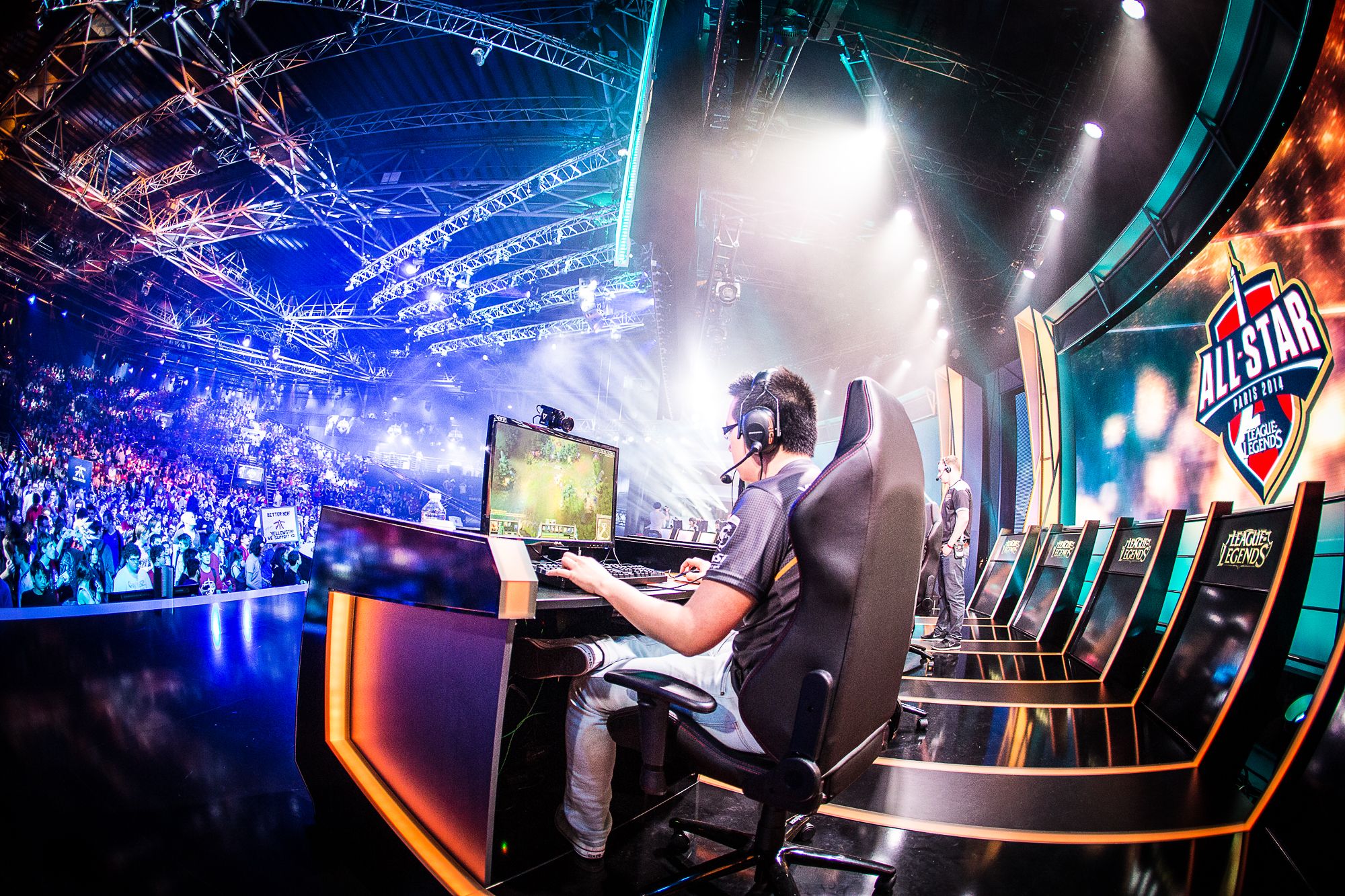Breaking News


Popular News


Violent video games have been a subject of controversy for decades, sparking discussions about their potential impact on gamers’ psychological well-being. The relationship between gaming and various psychological factors, such as aggression levels, desensitization, and emotion regulation, has garnered significant attention from researchers. Understanding the influence of gaming on cognitive functioning, empathy development, and even sleep patterns is crucial in today’s digital age. Moreover, the role of parental monitoring in mitigating the potential psychological effects of gaming cannot be overlooked. In this blog post, we will delve into the intricate and often debated terrain of the psychological effects of gaming.
Contents
When it comes to the impact of gaming, particularly violent video games, on aggression levels, there are several noteworthy points to consider. It’s essential to delve into the psychological aspects that can be affected by gaming to better understand its influence on aggression levels:
Increased Aggressive Tendencies: Research has shown that exposure to violent video games can lead to an increase in aggressive behavior, both in the short and long term. This is particularly significant in younger individuals who are still developing their cognitive and emotional regulation abilities.
Desensitization to Violence: Engaging in violent gaming can desensitize individuals to real-life violence, making them less responsive to aggressive stimuli in their environment. This desensitization can contribute to an overall increase in aggression levels.
Heightened Arousal: Violent video games often lead to heightened arousal, including increased heart rate and adrenaline production. This physiological response can prime individuals for aggressive behavior, especially when faced with real-life conflict or competition.
Considering the impact of gaming on aggression levels, it’s crucial to approach gaming habits with mindfulness and balance. While gaming can be an enjoyable and immersive activity, particularly for those interested in the gaming community, understanding its potential effects on aggression levels is vital for maintaining a healthy psychological state.
The psychological effects of gaming extend beyond aggression levels, and it’s essential to explore various aspects to gain a comprehensive understanding of gaming’s influence on the human psyche.

When it comes to the impact of gaming, particularly violent video games, on desensitization, it’s essential to understand the potential psychological repercussions. Research has shown that exposure to violent gaming content can lead to desensitization towards real-life violence and aggression. Here’s a closer look at the connection:
Desensitization Process: Frequent exposure to violent gaming scenes can desensitize individuals to the emotional impact of violence. This can lead to reduced physiological arousal and empathy towards violent acts in real life.
Emotional Blunting: Individuals who engage in excessive gaming, especially violent gameplay, may experience emotional blunting, where they become less responsive to emotional stimuli in the real world.
Comparison with Non-Violent Gaming: Studies comparing the effects of violent and non-violent gaming on desensitization have shown that violent gaming has a more pronounced desensitizing effect on individuals.
In summary, the relationship between violent video games and desensitization is a complex and significant area of study within gaming psychology. It’s crucial to consider the potential desensitizing effects of gaming, especially when it comes to prolonged exposure to violent content.
When it comes to gaming, whether it’s violent or not, the impact on emotion regulation is a topic of debate. Here’s a closer look at how violent video games can influence emotion regulation:
Desensitization and Emotional Response: Research suggests that exposure to violent video games may desensitize individuals to real-life violence, affecting their emotional responses. While gaming can be a way to manage emotions for some, excessive exposure to violent content can blur the lines between virtual and real emotions.
Stress and Agitation: Engaging in intense gaming sessions, especially those involving violent gameplay, can lead to increased stress and agitation. This can have a direct impact on emotion regulation, as individuals may struggle to manage their emotions effectively in other areas of their lives.
Desire for Escapism: Violent video games may influence emotion regulation by serving as a form of escapism. Individuals may turn to gaming as a way to cope with negative emotions, using it as a temporary distraction from real-life stressors.
In conclusion, while gaming, including violent video games, can have both positive and negative effects on emotion regulation, moderation and awareness of individual responses are key. Understanding personal limits and seeking diverse forms of emotional expression and regulation are vital for maintaining a healthy balance in gaming and emotions.
When it comes to gaming, particularly violent video games, the impact on cognitive functioning has been a topic of extensive research and discussion. Here’s a closer look at how gaming may influence cognitive functioning:
Cognitive Flexibility: Engaging in gaming, including violent video games, has been suggested to enhance cognitive flexibility. Players often need to adapt to changing scenarios, make quick decisions, and strategize, which can positively impact cognitive flexibility.
Attention and Concentration: Many studies have shown that gaming, including violent video games, can improve selective attention and concentration. Gamers often need to pay close attention to details, react swiftly to stimuli, and maintain focus for extended periods, which can strengthen these cognitive abilities.
Memory: Some research suggests that gaming could potentially enhance certain aspects of memory, such as spatial memory and visual memory. However, the impact of violent video games specifically on memory functions is still a topic of debate among researchers.
It’s important to note that while gaming may have some positive effects on cognitive functioning, moderation and balance are key. Excessive gaming, particularly of violent content, may have detrimental effects on cognitive abilities and overall well-being.
As more research is conducted in this area, it’s essential for both gamers and parents to stay informed about the potential impacts of gaming on cognitive functioning.
When it comes to gaming and empathy development, there are several key points to consider:
Exposure to Violence: Research has shown that prolonged exposure to violent gaming can desensitize individuals to aggression and violence, making it challenging to empathize with others’ suffering.
Empathy Training: While some argue that gaming can provide opportunities for perspective-taking and empathy development through immersive storytelling and character interaction, the prevalent themes of violence may overshadow these benefits.
Cognitive Dissonance: Engaging in acts of violence in a virtual environment while also being expected to empathize with others in real-life situations may create cognitive dissonance, potentially impacting empathy development.
Social Interaction: The multiplayer aspect of many violent video games can either enhance or diminish empathy, depending on the nature of interaction among players and the prevalence of cooperative versus aggressive behaviors.
Considering these points, it’s crucial to recognize the nuanced relationship between violent video games and empathy development. While some individuals may exhibit desensitization to violence, others could potentially benefit from empathy training within the gaming environment. Achieving a balance between entertainment and empathy development is key in addressing the psychological impact of violent video games.
Playing violent video games can have a significant impact on sleep patterns. Here’s how gaming affects sleep:
Increased Arousal: Gaming, especially violent games, can lead to increased arousal levels, making it challenging to wind down before bedtime. The intense and immersive nature of these games can overstimulate the mind, making it difficult to relax and fall asleep.
Disrupted Circadian Rhythms: The exposure to violent gaming content, often involving high levels of excitement and adrenaline, can disrupt the body’s natural circadian rhythms. This disruption can lead to irregular sleep patterns and difficulty in achieving restful sleep.
Delayed Sleep Onset: The engaging and sometimes adrenaline-inducing nature of violent video games can lead to delayed sleep onset. Players may find it challenging to transition from the heightened state of alertness induced by gaming to a relaxed state conducive to sleep.
In contrast, non-violent games or engaging in calming activities before bedtime may have a more positive impact on sleep patterns, promoting relaxation and improved sleep quality.
It’s important to recognize the potential impact of gaming on sleep and consider establishing boundaries and limits on gaming time, especially close to bedtime.
By understanding the connection between gaming and sleep patterns, individuals can make informed choices to prioritize rest and well-being, creating a healthier balance in their gaming habits.

Parental monitoring plays a crucial role in shaping the gaming experiences of children and adolescents. By actively engaging in their child’s gaming activities, parents can significantly mitigate the potential negative psychological effects of violent video games.
Setting Boundaries: Establishing clear guidelines on the types of games allowed and the duration of gameplay helps in minimizing exposure to excessively violent content. Parents can restrict access to games that contain graphic violence or intense aggression.
Open Communication: Encouraging open discussions about gaming content and its potential impact fosters a sense of awareness and responsibility in children. This enables parents to address any concerns or questions that may arise from the gaming experience.
Supervision and Participation: Actively monitoring and participating in gaming sessions allows parents to observe the content and dynamics of the games firsthand. This involvement provides insights into the potential effects of the games on their child’s behavior and emotions.
Educating about Healthy Gaming Habits: Promoting balanced gaming routines and emphasizing the importance of taking breaks can help in maintaining healthy gaming habits. Encouraging diverse interests beyond gaming is also beneficial for overall well-being.
By implementing these strategies, parents can help their children navigate the world of gaming in a manner that minimizes the negative psychological impact and fosters a balanced approach to gaming.
Remember, moderation and active involvement are key in ensuring that gaming remains a positive and enjoyable experience for children.
The active participation and guidance provided by parents can significantly influence the way gaming impacts the psychological well-being of their children. For instance, a comparison table showing the impact of parental monitoring on gaming habits and psychological effects can further highlight the importance of active parental involvement.
Overall, independent research and studies support the crucial role of parental monitoring in shaping a healthy gaming environment for children and adolescents.
Research suggests that playing violent video games can desensitize individuals to violence, increase aggressive thoughts and behaviors, and reduce empathy, especially in children and adolescents. However, the link between violent video games and real-world violence is complex and influenced by various factors such as individual personality and environment.
While some studies have found a correlation between playing violent video games and exhibiting aggressive behavior, it’s important to note that correlation does not always imply causation. Other factors, such as family environment and predisposition to aggressive behavior, also play a significant role. Additionally, research on this topic is ongoing, and not all studies have produced consistent results.
Yes, playing violent video games has been linked to desensitization to violence. This means that individuals may become less emotionally responsive to violent imagery and may exhibit reduced empathy towards others. However, the impact of desensitization can vary from person to person and may be influenced by individual differences and exposure to other forms of media.
Parents should consider monitoring and limiting their children’s exposure to violent video games, especially at a young age. It’s important to have open and honest discussions about the content of the games and to set clear guidelines for appropriate game choices. Additionally, parents can encourage the balanced use of video games with other activities, such as outdoor play and social interaction.